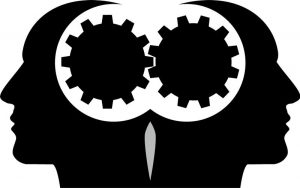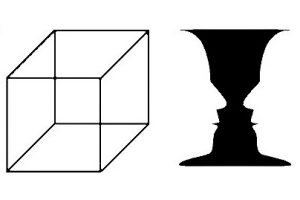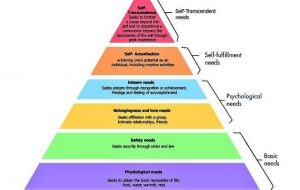Cyclothymia
Cyclothymia (cyclothymic disorder) is related to a person's mood changes. It is also known as manic-depressive psychosis and is considered a mild form of bipolar disorder between bipolar I and II.

Specialty
Psychiatry
Related Topics
Bipolar disorder
What is cyclothymia?
Cyclothymia or cyclothymic disorder is a mood disorder that manifests itself with several alternating episodes of hypomania and moderate depression that may be accompanied by anxiety, without becoming a major depressive case. It is caused by biological changes in the nervous system, but there are treatments to reduce their symptoms and help the patient to have a stable mood. Previously known as manic-depressive psychosis, it is located between bipolar disorder I and II, but is considered the most harmless bipolar disorder and its duration can take years or a lifetime if not treated early.
Worldwide, it is present between 0.4 and 1% of the world’s population. The rate is the same in men and women, but it is women who most frequently seek treatment for this type of disorder so that, it does not evolve into a more severe bipolar form. Many couples may be affected by cyclothymia because it is a chronic disorder that can last for years or a lifetime.
According to statistics, it begins between late adolescence and early adulthood. Adults are diagnosed after symptoms are evident for two years. In the case of children, they are diagnosed after one year.
Characteristics of cyclothymia
It manifests itself with the following characteristics:
- It is a chronic disorder.
- Presence of hypomanial episodes frequently with or without irritation.
- Presence of depressive episodes alternating with hypomania episodes.
- Presence of anxiety episodes.
- It is a mild type of bipolarity.
- It is originated by biological changes in the nervous system.
Types of bipolar disorders and cyclothymia
It’s one of the types of mild bipolar disorder. In the categories of bipolar disorders we can cite the following:
- Cyclothymia
- Bipolar disorder type I
- Bipolar disorder type II
- Unspecified bipolar disorder
- Rapid Cycle Bipolar Disorder
Diagnosis
For a doctor or specialist in the area who will determine a cyclothymia case and that it is not a case of bipolar disorder I or II, or another condition, it is necessary for the patient to undergo different physical and psychological tests to take into account elements such as:
- Blood pressure
- Lung function.
- Thyroid function.
- Blood
- Urine
- Evidence of alcohol or drug use.
- Psychological evaluations to study the patient’s thoughts, feelings, and behaviors.
All these examinations and tests carried out on a physical and psychological level will allow the doctor or specialist in this area to determine with the help of the patient’s family and friends if the patient suffers from a cyclothymia disorder and which might be the most appropriate treatment to overcome this disorder.
Causes
Cyclothymia may be caused by:
- Genetic origin. Especially when twins are involved.
- For pericardial reasons such as social difficulties, life events or living conditions.
- For contexts of people focused on achieving objectives or avoiding depressions.
Symptoms of cyclothymia
Among the most evident symptoms of cyclothymia we can mention two very marked types, depressants and hypomaniacs.
Some depressive symptoms include the following:
- Irritability
- Sleep disorders
- Feelings of sadness, emptiness, and hopelessness
- Wants to cry for no reason
- Concentration difficulties
- Restlessness
- Fatigue
- Suicidal thoughts
- Other
Of the hypomanic symptoms we can cite the following:
- Agitation and irritability
- Exaggerated optimism
- Accelerated thinking
- Excessive physical activity
- Increased desire to achieve goals
- Hyperactivity
- Emotional instability
- Search for strong emotions
- Impulsivity
- Irresponsibility
- Talking more than usual
- Other
Treatment of cyclothymia
Treatment includes the use of mood stabilizers and antidepressants with or without benzodiazepines. Psychotherapy techniques are also needed to reduce or eliminate episodes of this disorder.
Similarly, some treatments for bipolar disorder have been used in cases of cyclothymia that include cognitive-behavioral, rational emotional and client-centered therapies to treat patients who have cyclothymia.
Other specialists recommend strategies to maintain stable sleep patterns, avoid drug and alcohol use, walk 10 minutes daily, and use psychotherapy to create a routine that helps stabilize moods.
How to cite this article?
Briceño V., Gabriela. (2019). Cyclothymia. Recovered on 4 January, 2025, de Euston96: https://www.euston96.com/en/cyclothymia/









